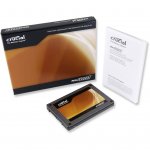My 2009 Macbook Pro is starting to feel a bit slow, perhaps I've just installed too much crap on it. 
Anyway, since I've started working again I'm looking to save up for a SSD replacement to my SATA HDD that's in the Macbook. I know the SSD drives are still pretty expensive but I think I can stick with a 60 GB SSD or so, I already have an external harddrive that's 500 GB so I don't need that much space.
So what are you thinking of these?
* Crucial 64GB Real SSD C300 2.5 Inch
* Corsair Force Series F60 60GB
* OCZ Vertex 2 E Series 60GB
They're all around 100 Euros.
I've read some of the pros and cons of a SSD drive. Pros being the access times / boot up and the cons are price per GB and write speeds.
What are you thoughts?
Anyway, since I've started working again I'm looking to save up for a SSD replacement to my SATA HDD that's in the Macbook. I know the SSD drives are still pretty expensive but I think I can stick with a 60 GB SSD or so, I already have an external harddrive that's 500 GB so I don't need that much space.
So what are you thinking of these?
* Crucial 64GB Real SSD C300 2.5 Inch
* Corsair Force Series F60 60GB
* OCZ Vertex 2 E Series 60GB
They're all around 100 Euros.
I've read some of the pros and cons of a SSD drive. Pros being the access times / boot up and the cons are price per GB and write speeds.
What are you thoughts?

